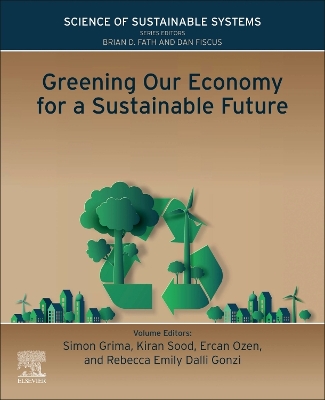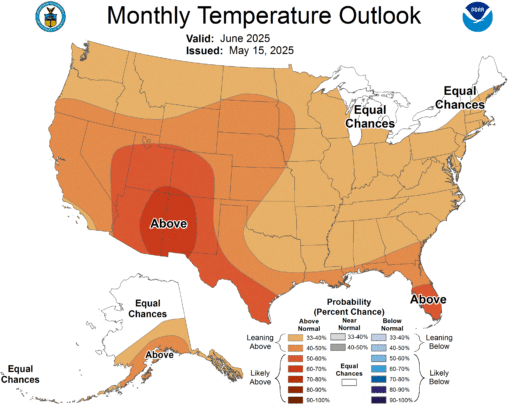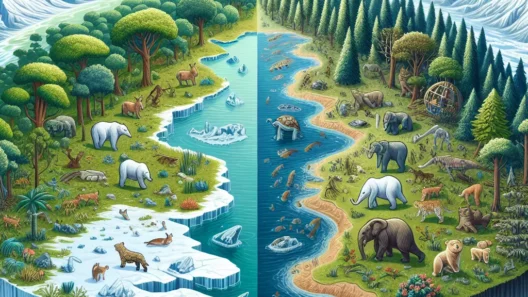As the planet undergoes unprecedented climatic shifts, the urgency for effective strategies to combat global warming becomes palpable. One of the most promising avenues for understanding and mitigating these changes lies within the study of ecosystems. By delving into the intricate web of interactions within these natural systems, researchers can unveil the secrets of nature’s balance and how it may provide vital clues for humanity’s survival. This exploration offers a profound shift in perspective, one where ecosystems are not merely passive components of the environment but active agents in the fight against climate change.
Firstly, ecosystems play a crucial role in carbon sequestration, fundamentally influencing the global carbon cycle. Forests, wetlands, and oceans act as significant carbon sinks, absorbing and storing carbon dioxide from the atmosphere. A deeper understanding of these processes can aid in developing targeted conservation initiatives that enhance these natural sequestering mechanisms. For instance, preserving boreal forests—rich in biodiversity and carbon storage potential—can mitigate the effects of climate warming. Additionally, restoring degraded ecosystems can unlock their inherent capacity to capture carbon, a practical approach that not only addresses climate change but also bolsters biodiversity.
In the realm of water systems, ecosystems such as wetlands and riparian zones present unparalleled opportunities to combat global warming. Wetlands act as natural buffers against flooding and are responsible for filtering pollutants, thereby improving water quality. Their ability to store carbon in plant biomass and soil makes them indispensable in carbon management strategies. Studies demonstrate that healthy wetland ecosystems can sequester carbon at rates up to three times greater than terrestrial forests. This transformative knowledge can steer conservation policies toward wetland protection and restoration, reinforcing their significance in ecological and climate resilience.
Moreover, understanding ecosystems provides essential insights into biodiversity and its correlation with climate change resilience. Biodiversity contributes substantially to ecosystem stability, allowing systems to withstand environmental stressors. A diverse array of species within an ecosystem can lead to greater productivity, resilience, and adaptability. Conversely, a decline in biodiversity often results in weakened ecosystems that are less capable of responding to changing climatic conditions. Therefore, fostering biodiversity through habitat preservation and responsible land-use practices can enhance ecosystem resilience, offering a buffer against the impacts of climate change. Researchers advocate for a holistic approach that recognizes the interdependence of species and ecosystems, aligning conservation efforts with the need to curb climate change.
The delicate interplay between ecosystem dynamics and climate is further exemplified by the phenomenon of phenology, the study of seasonal biological events. Changes in the timing of life cycle events—such as flowering, migrating, or breeding—can have cascading effects on ecological interactions and food webs. Understanding these patterns enables scientists to predict how species may adapt to shifting climates, guiding conservation efforts to preemptively address potential mismatches in species interactions. Such knowledge can inform strategies to manage protected areas, ensuring that they remain conducive to sustaining both wildlife and their habitats amid a changing climate.
Additionally, studying ecosystems illuminates the concept of “tipping points,” thresholds beyond which ecosystems may undergo irreversible change. Recognizing the early signs of such tipping points can be critical in preventing ecosystem collapse, an event that could exacerbate climate change through the release of stored carbon. For instance, the thawing of permafrost releases methane—a potent greenhouse gas—potentially accelerating global warming. By investigating the mechanisms that drive these tipping points, scientists can devise preemptive measures to protect vulnerable ecosystems, thereby averting catastrophic climatic consequences.
Furthermore, observing the intricate relationships within ecosystems can yield insightful methodologies for sustainable agriculture. Agroecological practices that mimic natural ecosystems can enhance soil health, increase biodiversity, and improve climate resilience. Techniques such as permaculture or regenerative agriculture have gained traction, showcasing how intertwined ecological principles with food production can foster sustainability. By emphasizing ecological balance, these practices not only mitigate emissions associated with conventional agriculture but also enhance food security in the face of fluctuating climatic conditions.
Education plays a pivotal role in harnessing the knowledge derived from ecosystem studies. Engaging communities in local conservation efforts can foster stewardship and promote an understanding of the vital roles ecosystems play in regulating climate. Public awareness campaigns and citizen science initiatives can galvanize grassroots movements, empowering individuals to take action by advocating for policies that prioritize ecosystem health. This collaborative approach underscores the significance of community engagement in addressing climate change, as local ecosystems are often most affected by global environmental shifts.
In conclusion, the study of ecosystems is not merely an academic pursuit but a critical component in the arsenal against global warming. By understanding nature’s complex interplay of components, we unveil transformative strategies that can bolster climate resilience while promoting biodiversity. Emphasizing the importance of ecosystem conservation and restoration not only serves to combat climate change but enriches our understanding of the planet’s natural systems. Recognizing the agency of ecosystems in this fight can shift perspectives toward a more integrated approach, piquing curiosity and igniting a passion for preserving our planet’s delicate balance. The future hinges on a harmonious coexistence with nature, where understanding and respecting ecosystems becomes a cornerstone of a sustainable world.







